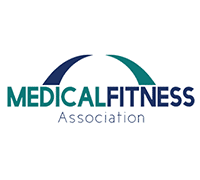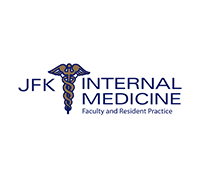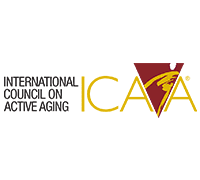What You Need to Know About Hormone Replacement Therapy
If you are suffering from low testosterone, HRT may help with the following:
INCREASED ENERGY & STAMINA
INCREASED SEXUAL PERFORMANCE
INCREASED SEX DRIVE
INCREASED JOY & HAPPINESS
INCREASED MUSCLE MASS
What You Need to Know About Hormone Replacement Therapy
Levels of hormones such as estrogen and progesterone fluctuate naturally as human beings age. But in many people, a hormonal imbalance can cause painful symptoms and disrupt their day-to-day life.
The onset of menopause is one major life event that can bring with it hot flashes, dryness, and night sweats. Hormone replacement therapy is commonly prescribed as a treatment for hormonal imbalance due to menopause and other causes. It’s also used as a gender-affirming treatment for transgender people.
Read on to learn everything you need to know about hormone replacement therapy: what it is, what it’s used for, the risks and benefits, and answers to some of the most frequently asked questions about HRT.
HRT Can Help With:
- Hot flashes
- Night sweats
- Vaginal dryness
- Other symptoms of menopause
- Gender-affirmation
What is Hormone Replacement Therapy?
Hormone replacement therapy, or “HRT,” refers to a group of medications that are taken to replace or supplement certain hormones. The goal of HRT is to relieve the symptoms of hormone imbalance and to improve overall health and well-being. The relief of these symptoms is often associated with better sleep, which can in turn reduce irritability and mood swings.
While HRT is most often prescribed during menopause, people of any age might be candidates for HRT if their doctor prescribes it for a variety of reasons, including as a gender-affirming therapy.
The most common forms of HRT are oral hormone medications taken by mouth.
HRT can involve taking:
- Estrogen only
- Progesterone only
- Both estrogen and progesterone
What are Hormones?
Hormones are natural chemicals in the human body that are responsible for the development, growth, and maintenance of the body’s different organs, tissues, and systems. They are produced and regulated by the endocrine system.
The endocrine system produces and releases hormones in the:
- Adrenal glands
- Gonads (ovaries and testes)
- Pituitary gland
- Thyroid gland
- Hypothalamus
- Pancreas
The hormones used in HRT are estrogen and progesterone.
How Do You Know if You Have a Hormonal Imbalance?
There are a range of symptoms associated with hormonal imbalance that you can look out for, but not everyone notices these symptoms first. A routine blood test can also alert you to an imbalance in estrogen or progesterone.
Menopause, which typically occurs for women between the ages of 45 and 55, is the most common cause of insufficient levels of estrogen and progesterone, but it is certainly not the only cause.
What Impacts Estrogen Levels and Imbalance?
Estrogen plays several roles throughout the body, most related to the female reproductive cycle. It helps stimulate the growth of egg follicles, maintains the thickness of the vaginal wall, maintains the mucous membrane lining the uterus, and helps form breast tissue. The ovaries and adrenal glands produce estrogen in early life and during pregnancy. During menopause, they produce little to no estrogen.
Factors that impact estrogen levels include:
- puberty
- pregnancy
- breastfeeding
- menopause
- aging
- weight, especially anorexia and obesity
- certain medications such as steroids
- high blood pressure
- diabetes
- some hereditary conditions
An imbalance of estrogen can cause:
- irregular periods
- hot flashes
- night sweats
- noncancerous lumps in the breast or uterus
- weight gain, especially in the hips, thighs, and waist
- decreased libido
- vaginal dryness
- dry skin
Many of these are common symptoms of menopause.
What Impacts Progesterone Levels and Imbalance?
Progesterone is primarily responsible for the monthly withdrawal of the lining of the uterus and ovaries before menstruation. It helps prepare the lining of the uterus for a fertilized egg to attach, and supports the uterus in the event of a fertilized egg remaining in the tube. It also promotes the development of the breasts and the growth of children in the womb.
The artificially produced version of progesterone is called progestin.
Progesterone levels are impacted by:
- menopause
- issues with the ovaries
- miscarriage
- ageing
An imbalance of progesterone can cause:
- pain in the abdomen
- sore breasts
- spotting
- vaginal dryness
- decreased libido
- low blood sugar levels
- headaches
- erectile dysfunction
- muscle loss
- fatigue
- difficulty concentrating
What’s the Difference Between HRT and TRT?
HRT stands for “hormone replacement therapy” and refers to the use of estrogen and progesterone, often called the “feminizing” hormones.
TRT stands for “testosterone replacement therapy”, which refers to the use of another hormone, testosterone, and is commonly used as a treatment for low testosterone levels. Testosterone is often referred to as the “masculinizing” hormone.
You may sometimes see HRT used as an umbrella term to include TRT.
How Does HRT Work and How is it Administered?
Hormone replacement therapy works by providing the body with the hormones it is missing. Different doses are used depending on the cause of the hormonal imbalance, as well as any risk factors relevant to each individual patient. Treatment can last from a few weeks to several years.
Hormone replacement therapy comes in a few different forms, from pills to topical creams. A doctor will be able to discuss which form is best for you.
Pills
Pills or tablets are the most common way of taking HRT because they are widely available, affordable, and easy to take. Pills are often taken once a day.
Some examples of HRT pills are:
- Activella
- Angeliq
- FemHRT
- Prempro
- Ortho-Prefest
- Premphase
- Jinteli
- Mimvey
- Bijuva
Injections
Hormones also come as a liquid that can be injected into your muscle or vein. This can be done by a healthcare provider or be self-administered, with a frequency of between once a week and once a month depending on your individual needs.
Patches
HRT patches administer hormones when they are stuck to your skin. They can be a convenient way to take HRT, since they only need to be changed every few days. Studies have found that unlike pills, patches carry no increased risk of blood clots or stroke.
Some patients may find constantly wearing a patch inconvenient, and others experience minor skin irritation.
Topical Creams, Gels, and Sprays
Hormone replacement therapy also comes in topical creams, gels, and sprays, which you rub or spray onto your skin daily.
Vaginal Rings and Creams
A cream or ring can be placed inside your vagina, primarily used to help relieve vaginal dryness.
Implants
Implants are an uncommon form of HRT. A small implant is inserted under your skin, usually near your stomach, under local anesthetic. It lasts for several months before being replaced.
How Much Does HRT Cost?
The cost of HRT depends on your prescription, its form (pills, injections, etc.), and whether it is brand name or generic. Cost can also vary between locations.
What are the Uses and Benefits of HRT?
For many years, HRT was used primarily to treat symptoms of menopause. More recently, doctors have recognized that HRT can be beneficial for a range of conditions other than menopause, including as gender-affirming therapy for transgender patients and conditions including osteoporosis, cardiovascular disease, and possibly even Alzheimer’s.
Today, hormone replacement therapy has a wide range of recognized benefits:
Alleviating symptoms of menopause
When people reach menopause, many begin to experience a range of uncomfortable symptoms, including:
- Hot flashes (sudden waves of heat), often with sweating, reddening skin, and a rapid heartbeat
- Chills (following hot flashes)
- Night sweats (hot flashes that interfere with sleep), which can cause insomnia
- Vaginal atrophy (when vaginal tissues thin and dry), which can result in feelings of vaginal tightness, pain, burning, or soreness during sex
While these symptoms are part of the natural aging process, they can be difficult to deal with. Hormone replacement therapy can help reduce the symptoms of menopause by providing the hormones that are missing during this time. This can relieve the symptoms of menopause and improve overall health and well-being.
Gender-affirming therapy for transgender patients
Hormone replacement therapy is also used as gender-affirming therapy for transgender people, whose gender expression differs from the sex they were assigned at birth.
Hormone therapy is typically used in combination with other treatment options, including other medications and surgery, to help transition transgender patients to the gender that corresponds with their gender identity.
Protecting against osteoporosis
Hormone replacement therapy can help protect against osteoporosis.
After menopause a natural process of bone loss occurs, which can lead to bone fractures and weakened bones. Hormone replacement therapy can help slow down or even prevent bone loss, which can help protect your bones and prevent fractures. Hormone replacement therapy can also help improve your bone health and reduce the risk of bone fracture.
Protecting against cardiovascular disease
In addition to osteoporosis, another common risk associated with menopause is cardiovascular disease. Early onset menopause (before the age of 40) has been linked to a 40% increased risk of developing coronary heart disease. Cardiovascular disease risk factors are more likely to develop when women have lower levels of estrogen, so HRT can protect against this.
Preventing the loss of muscle mass
As people grow older, they lose muscle mass and strength. This is called sarcopenia, and it can be caused by the loss of hormones during menopause. Hormone replacement therapy can help maintain muscle mass and strength by stimulating the production of muscle protein.
Protecting against colorectal cancer
Colorectal cancer is cancer that starts in the colon (also known as colon cancer) or on the rectum (also known as rectal cancer). Studies have found a link between HRT and lower risk of colorectal cancer.
May protect against some neurological conditions
A recent meta-analysis found a possible link between estrogen-based HRT and a decreased risk of Alzheimer’s and Parkinson’s diseases.
Alzheimer’s disease is the leading cause of dementia. In fact, it’s estimated that by the year 2050, the number of Americans age 65 and older will grow from 55 million (in 2019) to 88 million. As the brain’s ability to produce the neurotransmitter acetylcholine declines with age, it becomes harder for people to think, learn, and behave normally. Hormone replacement therapy may decrease the risk of developing Alzheimer’s. More study is needed, but these preliminary findings are promising.
What are Risks and Side Effects of HRT?
As with any medical treatment, hormone replacement therapy comes with risks and potential side effects.
The Risks of HRT
The benefits outweigh the risks for many patients, but are nonetheless worth considering. HRT:
- has been linked to a higher risk of breast cancer in some studies, while other studies have found that certain types of HRT do not carry this risk
- can increase your risk of blood clots when taken in tablet form
- is associated with a small increase in the risk of stroke when taken in tablet form
- transgender patients in particular have been found to have higher rates of unaddressed cardiovascular disease than the general population, which could cause complications while taking HRT
The Side Effects of HRT
As with any medical treatment, hormone replacement therapy can cause side effects.
The most common side effects of HRT are:
- Tender breasts
- Headaches
- Nausea
- Indigestion
- Abdominal pain
- Abnormal vaginal bleeding
Who Should Not Get HRT?
Because of the risks associated with hormone replacement therapy, it isn’t suitable for everyone. A doctor can assess your specific situation to determine whether or not HRT is a good option for you, but as a general overview, HRT might not be right for you if you:
- Are pregnant
- Are experiencing abnormal vaginal bleeding
- Have liver disease
- Have untreated high blood pressure
- Have a bleeding disorder
- Have a history of:
- Breast cancer
- Ovarian cancer
- Uterine cancer
- heart attack
- stroke
- blood clots
- Are at high risk for:
- Heart disease
- Dementia
- Blood clots
- Stroke
There are different types of hormone replacement therapy that contain estrogen, progesterone, or both. In addition to the above risk factors for HRT in general, HRT containing estrogen may not be right for you if you have:
- A history of smoking
- Gallbladder disease
- Migraines
- Seizure disorder
- Endometriosis
- Hyperlipidemia (high levels of fat in the blood)
- Uterine fibroids
FAQs About HRT
Answers to some of the most frequently asked questions about hormone replacement therapy.
Is HRT right for me?
Hormone replacement therapy might be right for you if you are experiencing symptoms of menopause, or are interested in gender-affirming therapy.
HRT might not be right for you if you are pregnant; have liver disease; have a history of breast cancer, ovarian cancer, uterine cancer, heart attack, stroke, or blood clots; or are at high risk for heart disease, dementia, blood clots, or stroke.
Everybody is different, so you should talk to your doctor about whether or not HRT is right for you.
What are the symptoms of menopause?
Menopause most often begins between age 45 and 55, and is the end of a person’s menstruating years. The transition to menopause often comes with a range of symptoms, including:
- Changes in your period, such as periods becoming shorter or longer or spotting
- Hot flashes
- Incontinence (loss of bladder control)
- Trouble sleeping
- Night sweats
- Vaginal pain
If you experience these symptoms, your doctor can help you determine if they’re due to menopause and discuss whether HRT is a good option for you.
Are hormonal changes normal?
Yes, hormonal changes are a normal part of aging.
The female body naturally produces less estrogen and progesterone you progress into your 40s and 50s. As a result, many women experience menopause and the changes that come with it, such as hot flashes, vaginal dryness, and symptoms of low estrogen. HRT is often prescribed to menopausal women to relieve these symptoms and to help maintain bone health.
Is HRT safe?
Yes, most experts agree that HRT is generally safe for most people.
“The North American Menopause Society, the American Society for Reproductive Medicine, and The Endocrine Society take the position that most healthy, recently menopausal women can use hormone therapy for relief of their symptoms of hot flashes and vaginal dryness if they so choose.”
Will HRT make me put on weight?
A common misconception about hormone replacement therapy is that it will cause you to gain weight. There is no evidence that this is the case. Weight gain is common during menopause and is associated with an imbalance in estrogen levels irrespective of HRT.
Conclusion
Hormone replacement therapy aims to correct hormonal imbalance, often in people suffering from the symptoms of menopause. In many people, menopause causes hot flashes, night sweats, chills, and vaginal pain or dryness. HRT can relieve these symptoms, as well as help to protect against osteoporosis (bone weakening leading to fractures), cardiovascular disease, and loss of muscle mass.
Hormone replacement therapy is also used to provide gender-affirming treatment for transgender people.








